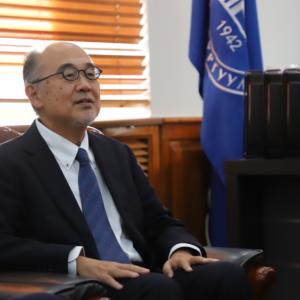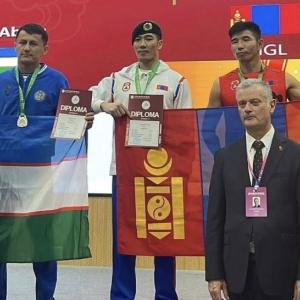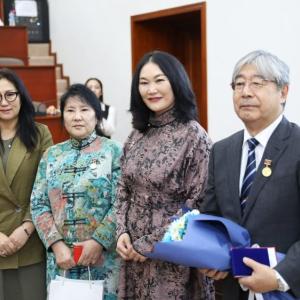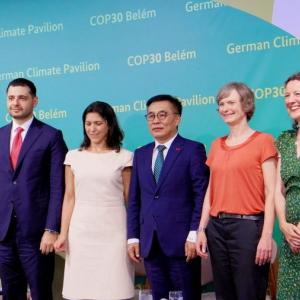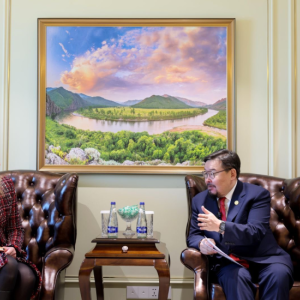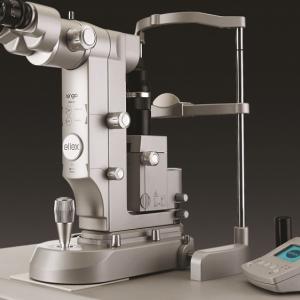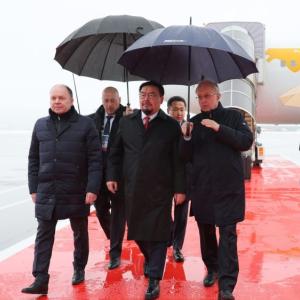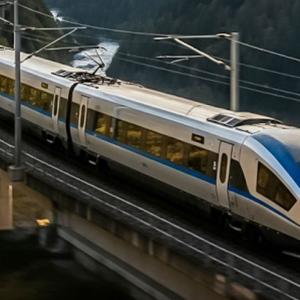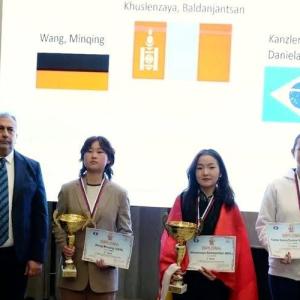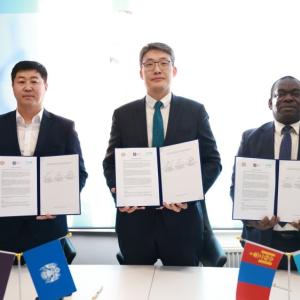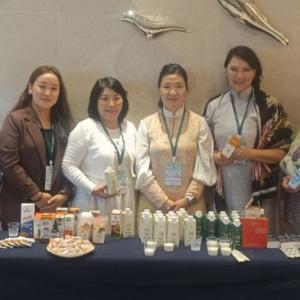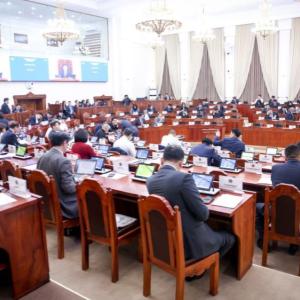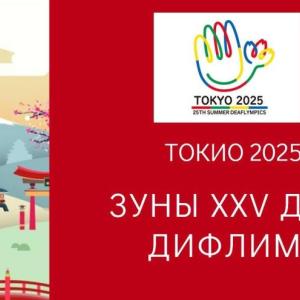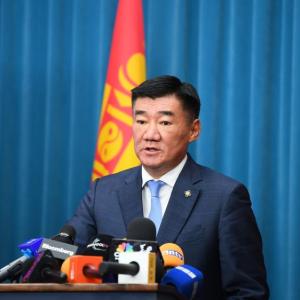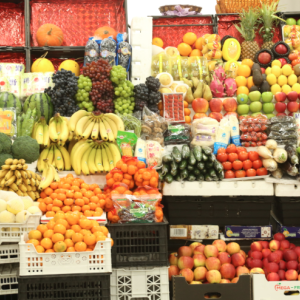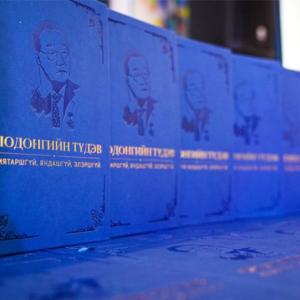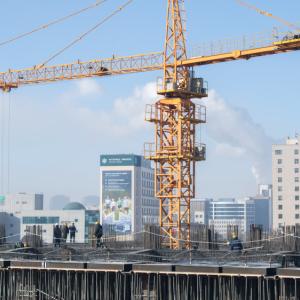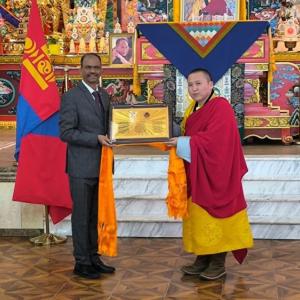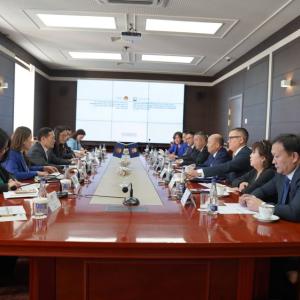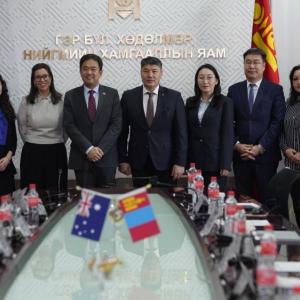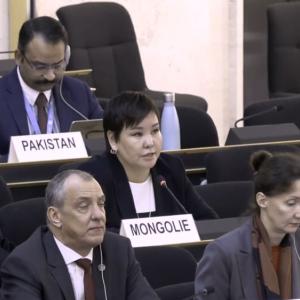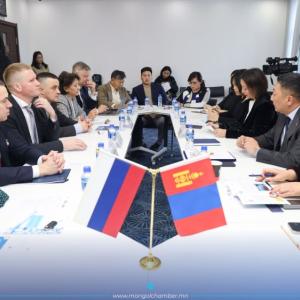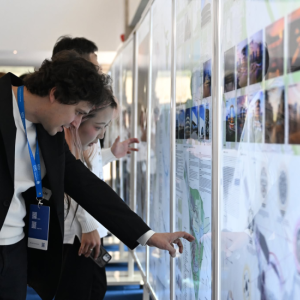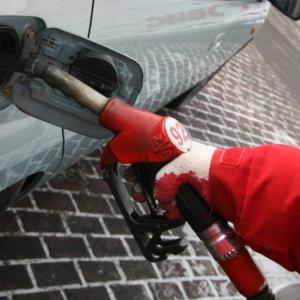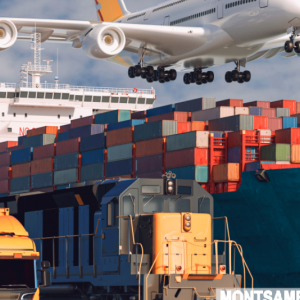EU Ambassador: We were assured there will be stability and continuity
The Mongol Messenger
Ambassadors of EU pay annual visit as bilateral relations advance
The first week of November was a European week in Mongolia with the annual visit of a group of Ambassadors and senior diplomats of the European Union to Ulaanbaatar and the entry into force of the Mongolia-EU Framework Agreement on Partnership and Cooperation on November 1 as well as the establishment of a Delegation (and Embassy) of the European Union.
On November 1, the EU Ambassador Mr Hans Dietmar Schweisgut led the EU group that included 18 non-resident Ambassadors of the EU Member States to Mongolia from Beijing as well as the seven resident Ambassadors. They addressed recent developments and existing issues in bilateral relations. The visit was timely, as Mongolia had undergone a major political change—the appointment of a new Cabinet.
During the annual visit, the non-resident and resident Ambassadors of EU Member States come together and jointly organize meetings with the Government. “It is an extremely valuable stock-taking exercise where we can discuss freely and openly where we stand and what our problems are and how they can be solved. Especially at this time, it is important to understand the direction of the new Government,” said Ambassador Schweisgut as he sat down with the Mongol Messenger on what may well be his last official visit to Mongolia.
“For us it was very interesting to get a feeling on whether if there will be continuity in Government policies and new initiatives in some areas based on the Government action program”, said the Ambassador on the purpose of the visit. “We got a message that there will indeed be continuity and stability from all government members that we met. We got some interesting insights.”
The annual visit also presents an opportunity to hold bilateral meetings for the EU Member states. “The visit is a very useful opportunity for both sides as we can go back with a feeling that we can tick off a number of problems and found new initiatives to pursue.”
During this visit, the EU Ambassadors held meetings with the President, the Minister of Foreign Affairs, Ministers and State Secretaries from the Ministries of Labor and Social Protection, Environment and Tourism, Mining and Heavy Industry and Food, Agriculture and Light Industry, Deputy Minister of Finance, Governor of the Bank of Mongolia, heads of international organizations and representatives of other institutions.
On November 1, the EU Ambassador Mr Hans Dietmar Schweisgut led the EU group that included 18 non-resident Ambassadors of the EU Member States to Mongolia from Beijing as well as the seven resident Ambassadors. They addressed recent developments and existing issues in bilateral relations. The visit was timely, as Mongolia had undergone a major political change—the appointment of a new Cabinet.
During the annual visit, the non-resident and resident Ambassadors of EU Member States come together and jointly organize meetings with the Government. “It is an extremely valuable stock-taking exercise where we can discuss freely and openly where we stand and what our problems are and how they can be solved. Especially at this time, it is important to understand the direction of the new Government,” said Ambassador Schweisgut as he sat down with the Mongol Messenger on what may well be his last official visit to Mongolia.
“For us it was very interesting to get a feeling on whether if there will be continuity in Government policies and new initiatives in some areas based on the Government action program”, said the Ambassador on the purpose of the visit. “We got a message that there will indeed be continuity and stability from all government members that we met. We got some interesting insights.”
The annual visit also presents an opportunity to hold bilateral meetings for the EU Member states. “The visit is a very useful opportunity for both sides as we can go back with a feeling that we can tick off a number of problems and found new initiatives to pursue.”
During this visit, the EU Ambassadors held meetings with the President, the Minister of Foreign Affairs, Ministers and State Secretaries from the Ministries of Labor and Social Protection, Environment and Tourism, Mining and Heavy Industry and Food, Agriculture and Light Industry, Deputy Minister of Finance, Governor of the Bank of Mongolia, heads of international organizations and representatives of other institutions.
EU Ambassador to be appointed earlier next year
One crucial purpose of the visit was the signing of an Agreement on the Establishment and Privileges and Immunities of the Delegation of the European Union to Mongolia between the Government of Mongolia and the EU and the European Atomic Energy Community (EAEC). Addressing this, the Ambassador stated, “The opening of a Delegation marks a new phase in our relationship. We have come to a point where our relationship is so intense that we feel we need a Delegation to interact with the Mongolian Government and other stake holders on a daily basis. With the entry into force of the Partnership and Cooperation Agreement, it is a good occasion to reinforce our relationship by appointing an Ambassador to Ulaanbaatar.”
At present, there are seven EU Member States with resident missions in the country. The EU Delegation will be located in the Embassy of Italy. A new Ambassador will be appointed earlier next year. Asked to elaborate on the priority areas of engagement for the EU Delegation, Ambassador Schweisgut touched upon the broad relations the EU shares with Mongolia with emphasis on three areas.
At present, there are seven EU Member States with resident missions in the country. The EU Delegation will be located in the Embassy of Italy. A new Ambassador will be appointed earlier next year. Asked to elaborate on the priority areas of engagement for the EU Delegation, Ambassador Schweisgut touched upon the broad relations the EU shares with Mongolia with emphasis on three areas.
“First of all, the EU appreciates Mongolia’s bright and well-functioning democracy as we share same values and respect for human rights. Mongolia is a like-minded partner on many issues related to international governance. Secondly, Mongolia is playing a very important geostrategic role in East Asia. This is also why we want to reinforce our relationship with Mongolia since the EU has become much more engaged in Asia in recent years. Thirdly, we have much potential to utilize when it comes to economic relations, trade and investment. There is still a lot to be done.”
He continued, “We know that the Government of Mongolia, after having agreed with the IMF on a programme, is looking forward to a new period of growth. We hope this will materialize. This is why we have stepped up our development cooperation with Mongolia.” The EU Delegation will be engaging in all these areas, with the addition of academic exchange and people-to-people relations. “We have a lot of work cut out for the new Delegation in Mongolia,” he added.

We have the conditions to discuss new projects and opportunities
Furthermore, one condition that set a perfect background for both the visit and the signing of agreement on establishment of a Delegation was, as aforementioned, the entry into force of the Mongolia-EU Partnership and Cooperation Agreement on November 1. The now effective Agreement replaces the 1993 Agreement on Trade and Economic Cooperation between the European Economic Community and Mongolia.
Discussing this upgrade of framework for bilateral cooperation, the Ambassador pointed out, “The 1993 agreement was the first step in the early period of bilateral relationship. It came very shortly after Mongolia became a democracy and, the EU wanted to show that it values Mongolia as a member of the club of democracies. But it became clear years later that the Agreement was no longer sufficient. We felt that a stronger framework which covers all areas of cooperation was needed.”
The negotiations on the new Agreement began in 2010 and concluded in 2013. Asked to comment on the length of ratification by 28 Member States of the EU which was four years, the Ambassador said, “It is quite a long time, but if you have to ratify something in 28 states, it would take a longer time. It wasn’t particularly surprising that the ratification took some time.”
The Ambassador points out that despite of the ratification procedure, bilateral relations have moved forward in the meantime pursuant to a provision in the Agreement that from the moment it was signed, it would be provisionally applied. “We didn’t really have to wait until the entry into force to start implementing it. We have new instruments such as GSP+ which opens a duty free access to the European market for majority of products produced in Mongolia. We started our human rights dialogue.”
Now that the Agreement is in force, covering everything from political relations to economy, trade and investment, the environment, climate change, social development, and development cooperation, it offers a very good basis for intensification of bilateral relations. “It also has the mechanisms to carry out such relation: the annual Joint Committee Meetings, a Special Committee on Trade and Investment. We have a clear and firm framework to advance our relations,” said the Ambassador.
The Agreement’s entry into force is understood to mark the beginning of a new era in the bilateral relationship. Looking at the future of Mongolia-EU relations, Ambassador Schweisgut reflected, “The new phase means that we have established a strong relationship of mutual trust and common political will to move forward and to achieve more.”
“The EU is a modest economic partner when you compare it to the main partner which is of course China. But we can see that there are some interesting positive developments which would open up new opportunities.” As the Ambassador stressed, one of the major requirements to increase investment will be longer term stability and predictability in the business and investment climate which would continue to make Mongolia an attractive place to invest.
Discussing this upgrade of framework for bilateral cooperation, the Ambassador pointed out, “The 1993 agreement was the first step in the early period of bilateral relationship. It came very shortly after Mongolia became a democracy and, the EU wanted to show that it values Mongolia as a member of the club of democracies. But it became clear years later that the Agreement was no longer sufficient. We felt that a stronger framework which covers all areas of cooperation was needed.”
The negotiations on the new Agreement began in 2010 and concluded in 2013. Asked to comment on the length of ratification by 28 Member States of the EU which was four years, the Ambassador said, “It is quite a long time, but if you have to ratify something in 28 states, it would take a longer time. It wasn’t particularly surprising that the ratification took some time.”
The Ambassador points out that despite of the ratification procedure, bilateral relations have moved forward in the meantime pursuant to a provision in the Agreement that from the moment it was signed, it would be provisionally applied. “We didn’t really have to wait until the entry into force to start implementing it. We have new instruments such as GSP+ which opens a duty free access to the European market for majority of products produced in Mongolia. We started our human rights dialogue.”
Now that the Agreement is in force, covering everything from political relations to economy, trade and investment, the environment, climate change, social development, and development cooperation, it offers a very good basis for intensification of bilateral relations. “It also has the mechanisms to carry out such relation: the annual Joint Committee Meetings, a Special Committee on Trade and Investment. We have a clear and firm framework to advance our relations,” said the Ambassador.
The Agreement’s entry into force is understood to mark the beginning of a new era in the bilateral relationship. Looking at the future of Mongolia-EU relations, Ambassador Schweisgut reflected, “The new phase means that we have established a strong relationship of mutual trust and common political will to move forward and to achieve more.”
“The EU is a modest economic partner when you compare it to the main partner which is of course China. But we can see that there are some interesting positive developments which would open up new opportunities.” As the Ambassador stressed, one of the major requirements to increase investment will be longer term stability and predictability in the business and investment climate which would continue to make Mongolia an attractive place to invest.
“The economy is picking up again, trade and investment figures are improving, so I think we have the conditions to discuss projects, how to increase trade, how to create new investment opportunities for SMEs,” the Ambassador said. Mongolia and the EU have cooperation programmes and projects with a focus on issues such as employment creation, facilitation of value chains, especially in the area of agriculture. “There are plenty of opportunities, but we need the necessary conditions and stable and forward-looking climate to implement.”
There is a stronger realization to address policy inconsistency
Ambassador Schweisgut previously served as Ambassador of Austria to Mongolia between 2003 and 2007. He was appointed the Ambassador of the EU in 2014. With this in consideration, I decided to inquire into the Ambassador’s insights into Mongolia.
Before he was appointed Austrian Ambassador, he first came to Mongolia in September, 2003, to participate in the Fifth International Conference on New and Restored Democracies, which was the first major international conference Mongolia hosted. Interestingly, the Ambassador presented his credentials earlier than he did in China which is “very unusual”.

Before he was appointed Austrian Ambassador, he first came to Mongolia in September, 2003, to participate in the Fifth International Conference on New and Restored Democracies, which was the first major international conference Mongolia hosted. Interestingly, the Ambassador presented his credentials earlier than he did in China which is “very unusual”.

Recalling his first day in Mongolia, the Ambassador said, “I also remember that I hadn’t expected to go to Mongolia so quickly, I was transferred from Tokyo to China at that time. I didn’t have any warm clothes, so when I came in September, it was a bit chilly. One of the first things I had to do was go to the cashmere store.” He then remembered his arrival as the EU Ambassador in 2014, and said, “One of the things which struck me was how much Ulaanbaatar had changed in those 10 years. There were modern, high-rise buildings and more traffic jams. The difference is spectacular when I compare it to the first time I came.”
The Ambassador told me that the best thing about Mongolia is the Mongolian people. “Every time I come here, I meet warm, intelligent, friendly, outward looking people. It is always such a pleasure to be here and have the feeling that when you come back you have friends.” He then adds natural beauty as addition feature that makes Mongolia a spectacular country. Ambassador Schweisgut has travelled in Mongolia on a few occasions and been to quite a few aimags during his private visits during the summer.
The Ambassador continued to share his insights into Mongolia. “Mongolia is quite unique in terms of its history and culture. The Mongolian people are justifiably proud. I think there is still a very strong connection between the Mongolian people and nature. There is a way of life still much rooted in nature and a very special civilization and culture which makes Mongolia very attractive.”
Sharing his opinion on how Mongolia can work its way towards a better future, Ambassador Schweisgut names political stability, predictability and the right economic policies as means through which Mongolia, given its mineral and agricultural resources, can develop to be a more prosperous country. “Over the past decade, we have seen insufficient consistency. Had we seen more consistency in policy implementation, some of the negative developments could have been avoided,” he said. The Ambassador then informs that he got a message this time that there is awareness that policy inconsistency has indeed been an obstacle and there is a stronger realization that this needs to be addressed.
The Ambassador continued to share his insights into Mongolia. “Mongolia is quite unique in terms of its history and culture. The Mongolian people are justifiably proud. I think there is still a very strong connection between the Mongolian people and nature. There is a way of life still much rooted in nature and a very special civilization and culture which makes Mongolia very attractive.”
Sharing his opinion on how Mongolia can work its way towards a better future, Ambassador Schweisgut names political stability, predictability and the right economic policies as means through which Mongolia, given its mineral and agricultural resources, can develop to be a more prosperous country. “Over the past decade, we have seen insufficient consistency. Had we seen more consistency in policy implementation, some of the negative developments could have been avoided,” he said. The Ambassador then informs that he got a message this time that there is awareness that policy inconsistency has indeed been an obstacle and there is a stronger realization that this needs to be addressed.
The interview was published on the 45th issue of the Mongol Messenger.
Photography: B.Chadraabal
Kh.Aminaa
 Ulaanbaatar
Ulaanbaatar







